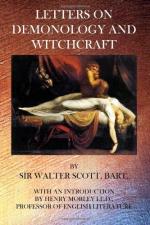|
This section contains 7,909 words (approx. 27 pages at 300 words per page) |

|
The term witchcraft embraces a wide variety of phenomena. Its meaning varies according to historical and cultural context. The word witch derives from the Old English noun wicca (sorcerer) and the verb wiccian (to cast a spell). The original concept of witchcraft corresponds to what anthropologists call sorcery: the attempt to influence the course of events by ritual means. Sorcery is widespread and found in almost every culture and historical period. Two other, quite different, phenomena have also been called witchcraft. The first is the alleged diabolical witchcraft of early modern Europe and its colonies; the second is Neopagan witchcraft, a twentieth-century revival. This article will distinguish sharply among these three phenomena, because the connections between them are few and tenuous.
Anthropological Concepts of Sorcery and Witchcraft
Anthropologists distinguish between sorcery and witchcraft. Sorcery is a system of beliefs and practices whose goal is...
|
This section contains 7,909 words (approx. 27 pages at 300 words per page) |

|




